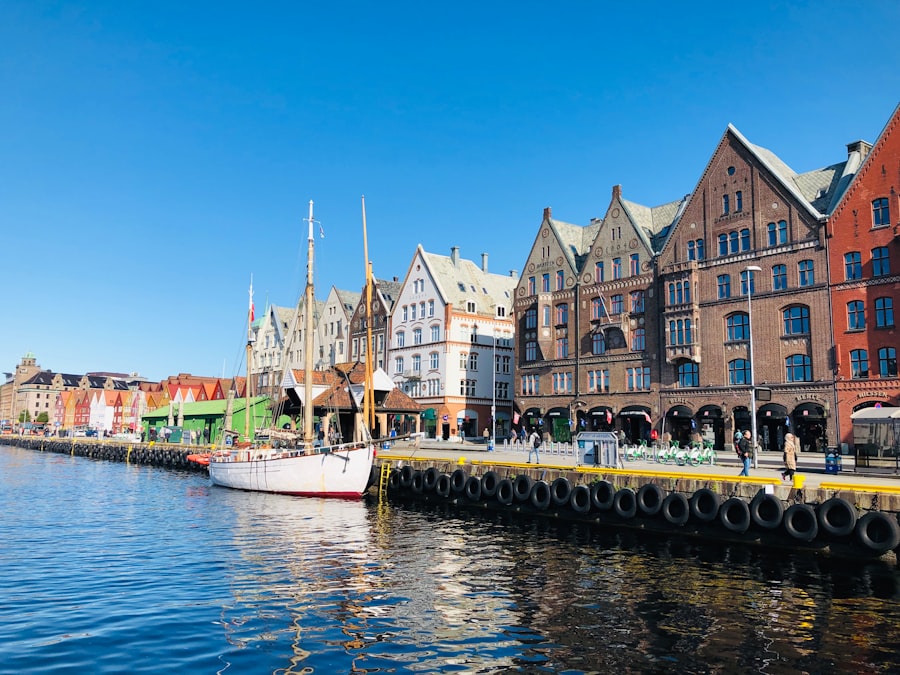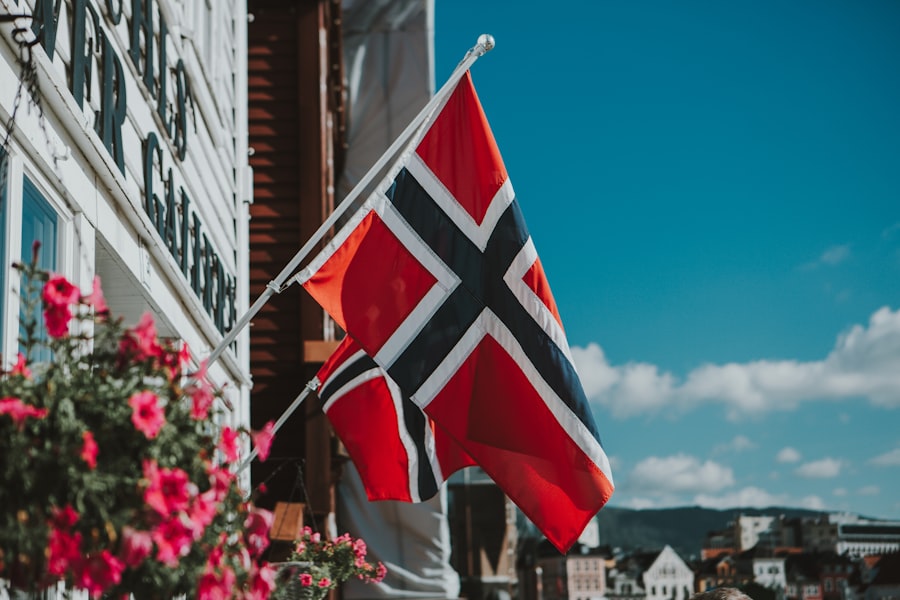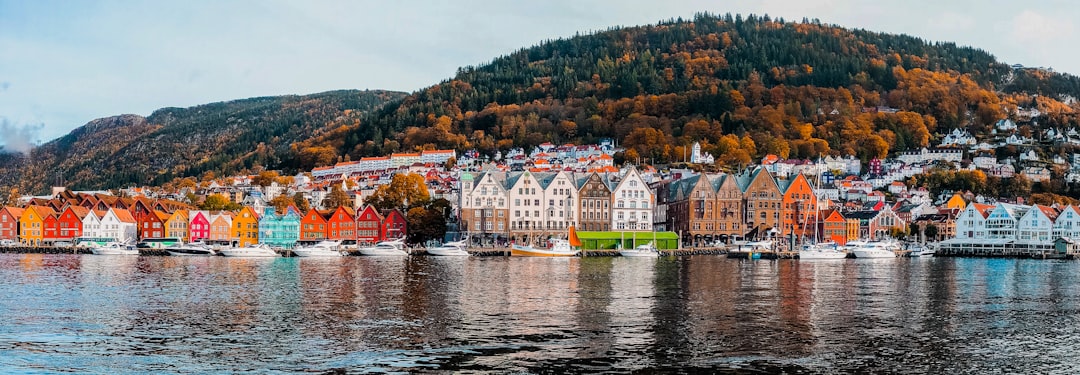The Norwegian monarchy, one of the oldest in the world, has been a cornerstone of Norway’s national identity and cultural heritage for centuries. Established in the early medieval period, the monarchy has evolved through various political and social changes, adapting to the needs and aspirations of the Norwegian people. Today, it stands as a symbol of continuity and stability, representing the nation’s history while also embracing modernity.
The current monarch, King Harald V, has played a pivotal role in maintaining the relevance of the monarchy in contemporary society, fostering a sense of unity among Norwegians. The royal family is not merely a ceremonial entity; it embodies the spirit of Norway and its people. The monarchy’s presence is felt in various aspects of national life, from cultural events to international diplomacy.
As Norway navigates the complexities of the modern world, the monarchy remains a vital institution that connects the past with the present, offering a sense of belonging and pride to its citizens. This article will explore the historical significance of the monarchy, its role in national celebrations, and its impact on Norwegian culture and identity. Your journey to a smooth relocation starts here. Talk one-on-one with a Norway Relocation specialist and turn your plan into a reality.
Summary
- The Norwegian Monarchy has a long-standing historical significance in the country, dating back to the Viking Age.
- The monarchy plays a central role in national celebrations, particularly in the annual Constitution Day (17th of May) festivities.
- The royal family’s participation in international events serves as a representation of Norway on the global stage.
- The monarchy holds symbolic importance in Norwegian culture, influencing traditions and national identity.
- Public perception of the monarchy’s role in national celebrations is a topic of ongoing debate and controversy.
Historical Significance of the Monarchy in Norway
The historical significance of the Norwegian monarchy cannot be overstated. It traces its roots back to the Viking Age, when chieftains and kings ruled over various regions. The unification of Norway under King Harald Fairhair in the late 9th century marked a pivotal moment in the establishment of a cohesive national identity.
Over the centuries, the monarchy has weathered numerous challenges, including wars, political upheavals, and changes in governance. Each monarch has contributed to shaping Norway’s political landscape, influencing everything from laws to social norms. Throughout history, the monarchy has served as a unifying force during times of crisis.
For instance, during World War II, King Haakon VII became a symbol of resistance against Nazi occupation, embodying the spirit of Norwegian resilience. His steadfastness inspired hope among Norwegians and solidified the monarchy’s place in the hearts of the people. This historical legacy continues to resonate today, as citizens look to their royal family for guidance and inspiration in navigating contemporary challenges.
The Monarchy’s Role in National Celebrations

The Norwegian monarchy plays an integral role in national celebrations, serving as a focal point for collective pride and unity. Events such as Constitution Day and various cultural festivals see members of the royal family actively participating, reinforcing their connection with the populace. Their presence at these celebrations not only elevates the significance of the events but also fosters a sense of belonging among citizens.
The royal family’s involvement serves as a reminder of shared values and traditions that bind Norwegians together. Moreover, these celebrations provide an opportunity for the monarchy to engage with citizens on a personal level. The royal family often interacts with attendees, sharing in the joy and festivities that characterise these occasions.
This accessibility helps demystify the institution and allows citizens to feel a personal connection with their monarchs. As such, national celebrations become not just events on a calendar but meaningful experiences that strengthen the bond between the monarchy and the people.
Participation in Constitution Day (17th of May) Celebrations
One of the most significant national celebrations in Norway is Constitution Day, celebrated on 17th May each year. This day commemorates the signing of Norway’s constitution in 1814 and is marked by parades, music, and various festivities across the country. The royal family plays a prominent role in these celebrations, with King Harald V and Queen Sonja traditionally attending events in Oslo.
Their presence at such a pivotal moment in Norway’s history underscores the importance of constitutional democracy and national pride. During Constitution Day celebrations, members of the royal family often participate in parades alongside schoolchildren and citizens dressed in traditional attire known as “bunad.” This visual representation of cultural heritage highlights the monarchy’s commitment to preserving Norwegian traditions while fostering a sense of unity among diverse communities. The royal family’s active involvement not only enhances the day’s significance but also reinforces their role as custodians of Norwegian culture and history.
Representation of Norway in International Events
The Norwegian monarchy also plays a crucial role in representing Norway on the international stage. Members of the royal family frequently attend state visits, diplomatic functions, and international conferences, showcasing Norway’s values and culture to a global audience. Their presence at such events serves to strengthen diplomatic ties and promote Norway’s interests abroad.
The monarchy acts as an ambassador for Norwegian ideals, including democracy, human rights, and environmental sustainability. In addition to formal diplomatic engagements, members of the royal family often participate in cultural exchanges that highlight Norway’s rich heritage. By showcasing traditional music, art, and cuisine at international events, they foster greater understanding and appreciation for Norwegian culture worldwide.
This cultural diplomacy not only enhances Norway’s global standing but also reinforces the monarchy’s role as a bridge between Norway and other nations.
Symbolic Importance of the Monarchy in Norwegian Culture

The symbolic importance of the Norwegian monarchy extends beyond its historical roots; it is deeply embedded in contemporary culture as well. The royal family represents continuity amidst change, embodying values such as duty, service, and commitment to the nation. This symbolism resonates with Norwegians who view their monarchs as figures who transcend political divisions and embody national unity.
Moreover, the monarchy serves as a source of inspiration for artists, writers, and musicians who draw upon royal themes in their work. From literature to visual arts, references to the monarchy can be found throughout Norwegian culture, reflecting its enduring influence on national identity. This artistic engagement with royalty further cements its place within the cultural fabric of Norway.
Royal Family’s Influence on Norwegian Traditions
The royal family has played an influential role in shaping various Norwegian traditions over time. Their participation in cultural events often brings renewed attention to age-old customs that might otherwise fade into obscurity. For instance, traditional celebrations such as Midsummer or Christmas have been revitalised through royal endorsement, encouraging citizens to embrace their heritage with pride.
Additionally, members of the royal family often champion charitable causes that align with traditional values such as community service and social responsibility. By supporting initiatives that promote education, health care, and environmental sustainability, they reinforce these values within society while inspiring citizens to engage actively in their communities. This influence extends beyond mere symbolism; it encourages a collective commitment to preserving Norway’s rich traditions for future generations.
Monarchy’s Support for National Unity and Identity
The monarchy serves as a powerful symbol of national unity and identity in Norway. In a country characterised by its diverse population and regional differences, the royal family embodies a shared sense of belonging that transcends individual backgrounds. Their presence at national events fosters inclusivity and reinforces the idea that all Norwegians are part of a larger narrative.
Furthermore, during times of crisis or uncertainty, the monarchy often steps forward to provide reassurance and stability. Whether addressing national tragedies or celebrating achievements, their words resonate deeply with citizens who look to their monarchs for guidance and support. This role as a unifying force is essential for maintaining social cohesion within an increasingly complex society.
Public Perception of the Monarchy’s Role in National Celebrations
Public perception of the monarchy’s role in national celebrations is generally positive among Norwegians. Many view their royal family as approachable figures who genuinely care about their citizens’ well-being. The active participation of monarchs in various events fosters goodwill and strengthens public support for the institution.
However, there are also voices within society that question the relevance of monarchy in modern times. Some argue that it represents an outdated system that should be replaced by more democratic forms of governance. Despite these dissenting opinions, surveys consistently show that a significant majority of Norwegians support maintaining their monarchy as an integral part of national identity.
Controversies and Debates Surrounding the Monarchy’s Role
While the monarchy enjoys widespread support, it is not without its controversies and debates. Issues surrounding transparency, accountability, and public funding often arise in discussions about its relevance today. Critics argue that maintaining a royal family is an extravagant expense that could be better allocated towards social welfare programs or public services.
Additionally, there have been instances where members of the royal family have faced scrutiny for their actions or statements. Such controversies can lead to public debate about whether certain behaviours align with the values expected from representatives of the monarchy. Nevertheless, these discussions often serve to reinforce public interest in the institution rather than diminish its significance.
Future of the Monarchy in Norwegian National Celebrations
Looking ahead, the future of the Norwegian monarchy appears secure within national celebrations despite ongoing debates about its relevance. As younger generations become more engaged with their heritage, there is potential for renewed interest in traditional customs that involve royal participation. The monarchy’s adaptability will be crucial in ensuring its continued relevance amidst changing societal norms.
Moreover, as Norway faces new challenges such as climate change and globalisation, there is an opportunity for the royal family to take on leadership roles that resonate with contemporary issues. By championing causes that reflect modern values while remaining rooted in tradition, they can further solidify their place within national celebrations and continue to inspire future generations. In conclusion, while discussions about its role may persist, there is no denying that the Norwegian monarchy remains an essential part of national celebrations and identity.
Through its historical significance, active participation in events like Constitution Day, representation on international platforms, and influence on culture and traditions, it continues to embody what it means to be Norwegian today. As citizens gather to celebrate their heritage alongside their royal family, they reaffirm their commitment to preserving both tradition and progress for generations to come. For those considering relocating to Norway or immersing themselves further into this rich culture, organisations like Norway Relocation Group can provide invaluable assistance during this transition period.
Additionally, engaging with local institutions such as NLS Norwegian Language School can enhance your experience by offering comprehensive courses designed to help you master the language while deepening your understanding of Norwegian customs and traditions—an essential step towards fully embracing life in this beautiful country.
Register for a Norwegian class at the NLS Norwegian Language School now!

